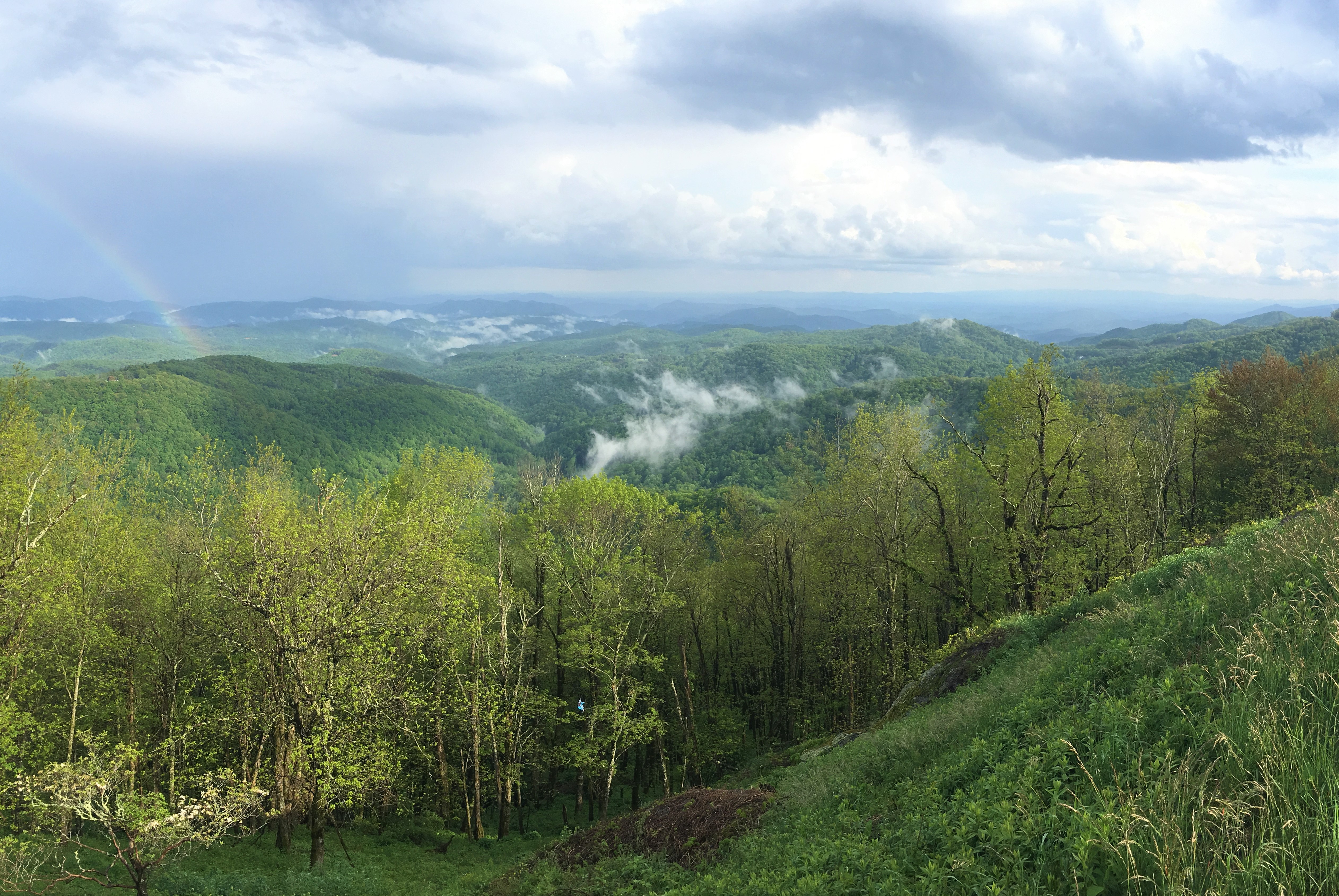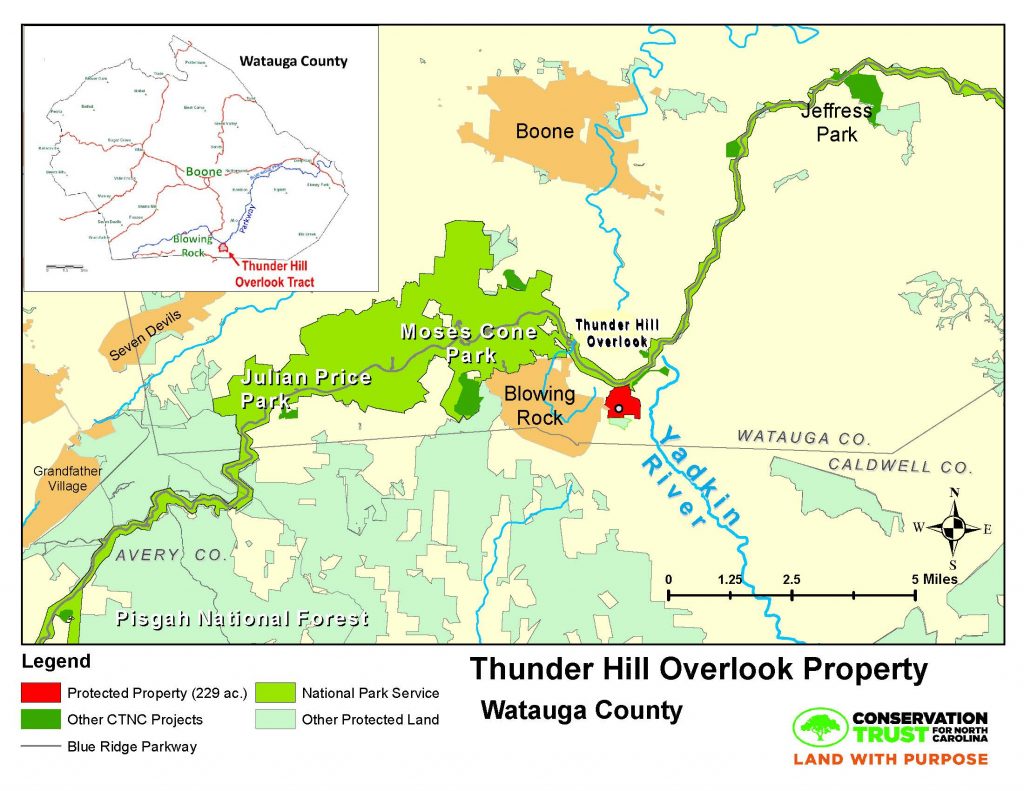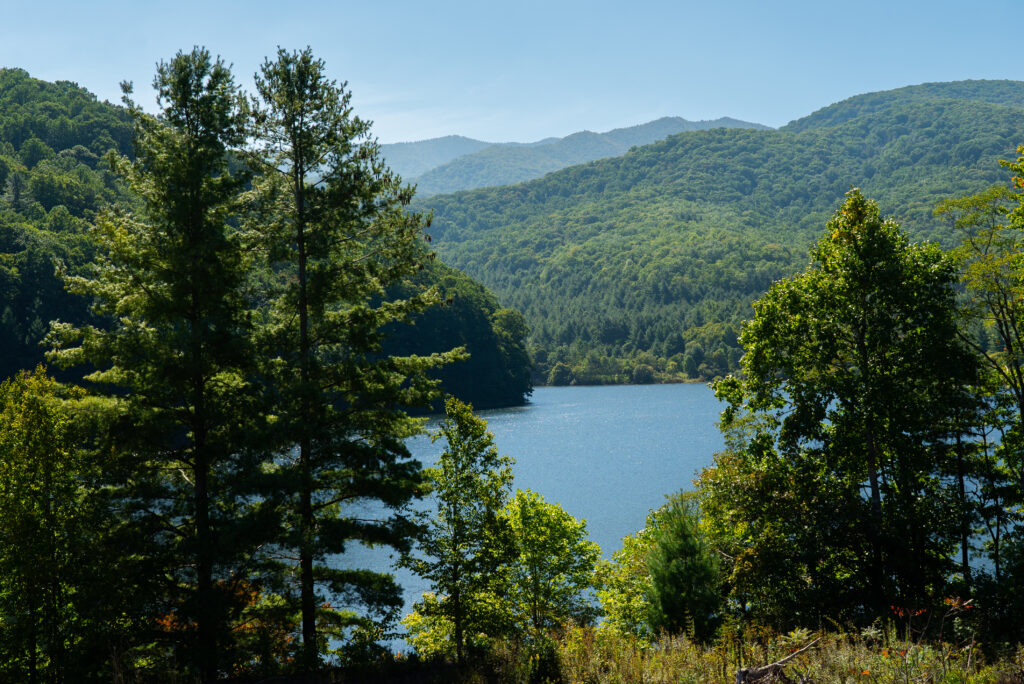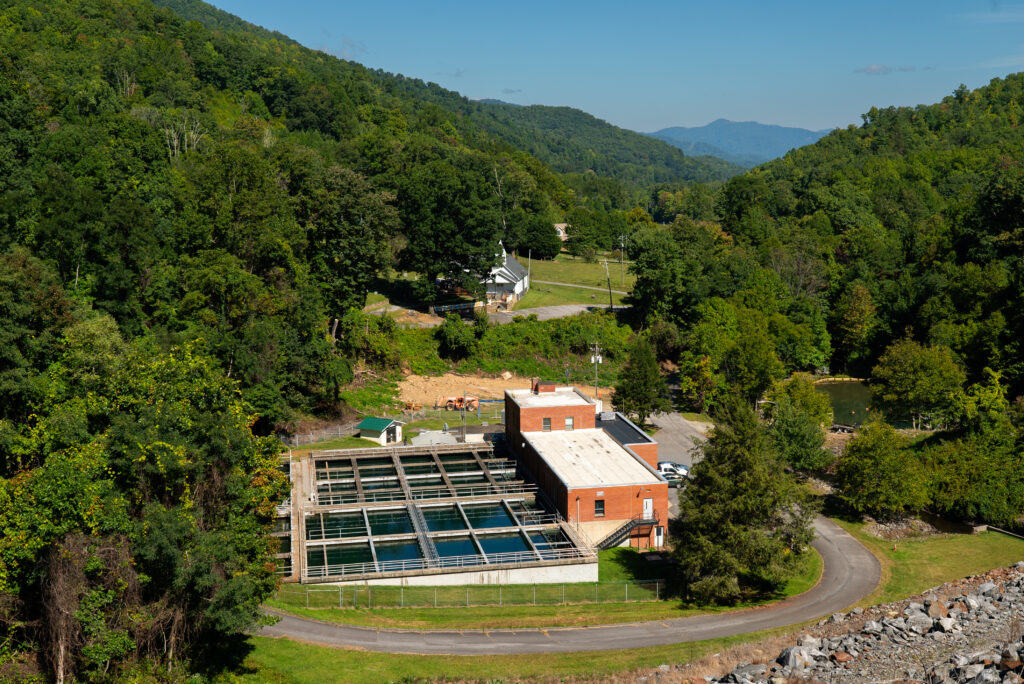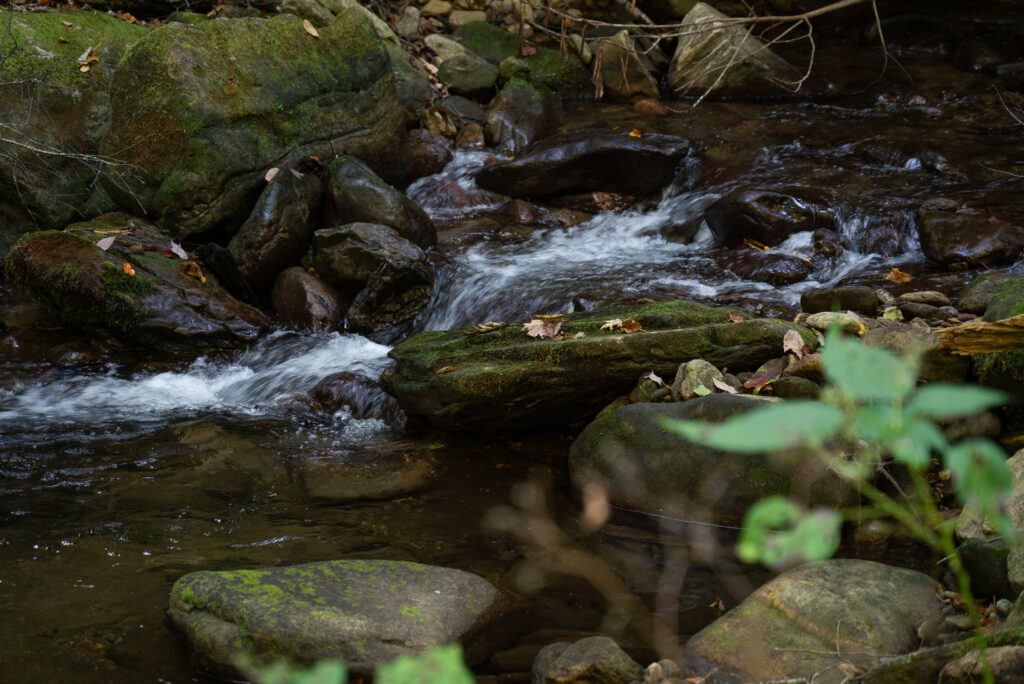Each year, CTNC AmeriCorps members join a nationwide movement to honor the memory of Dr. Martin Luther King, Jr. by participating in the annual Day of Service. In partnership with six host organizations in western North Carolina, the Triangle and coastal region, CTNC’s AmeriCorps members organized events that drew hundreds of volunteers to spend time outside and contribute to conservation projects in their local community.
Scroll down to see photos from each of the events where staff, AmeriCorps members and volunteers cleaned up a public nature preserve, collected oyster shells for a living reef installation, reforested open fields to revitalize habitat for wildlife and much more.
Anne Maxwell Ellett
Ellerbe Creek Watershed Association
Eighty people attended a clean-up event organized by Anne Maxwell to support stewardship of Ellerbe Creek Watershed Association’s Beaver Creek Marsh Preserve. The group worked on clearing invasive species (ivy and privet), collected multiple truck-loads of trash, and mended fences. More CTNC AmeriCorps members joined Anne Maxwell for the event including Emily Goetz, Bald Head Island Conservancy; Ashley Meredith, Durham Hub Farm; Joy-Lynn Rhoton, Highlands-Cashiers Land Trust; Kate Conery, NC Coastal Foundation; Reilly Kelly, NC Coastal Foundation; Lauren Huffstetler, Piedmont Triad Regional Council; Kayla Kohlmann, Piedmont Triad Regional Council; Molly Richard, Triangle Land Conservancy; Jade Woll, NC Coastal Land Trust.
Click here to see photos!
Kristin Gibson
North Carolina Coastal Federation
In partnership with Leadership Carteret, AmeriCorps member Kristin Gibson organized an event for 12 students to bag oyster shells. The effort totaled 200 bags that will help construct a living oyster reef. Volunteers were so dedicated, they stayed longer than necessary to get all the work done!
April Hausle
North Carolina Arboretum
AmeriCorps member April Hausle participated in a workday at Shiloh Community Garden in Asheville. Residents of the historically black community added mulch to the garden and completed a social justice art project where children cut out magazine photos to design a mural of the United States. Michelle Durr, who is serving at Southern Appalachian Highlands Conservancy, also attended.
Jannette Morris
Eno River Association
An old farm field along the Eno River will be restored to its natural habitat after 100 volunteers gathered to plan 200 hardwood trees. Jannette Morris organized the tree-planting, which will contribute to cleaner water flowing from the Eno River into Falls Lake, the main drinking water source for Raleigh and eight other reservoirs.
Click here to see photos!
Bethany Sheffer
Balsam Mountain Trust
Representing CTNC AmeriCorps, Bethany Sheffer volunteered with Conserving Carolina’s Project Conserve members at Asheville’s Burton Street Community Peace Gardens. The event was led by DeWayne Barton, founder of Hood Huggers International, which offers sustainable strategies for building support pillars for resilient historically African American neighborhoods, providing a framework for community capacity building while increasing the effectiveness of existing service programs. The Burton Street Peace Gardens is a sanctuary for positive action, designed to create neighborhood food security, community cohesion and a vibrant, sustainable local economy.
Click here to see photos!
Jonathan Hill, Keep Durham Beautiful
In partnership with Duke Roundtable, a Duke University student service group, Jonathan Hill organized a litter clean-up recruiting 100 volunteers to participate in the Keep Durham Beautiful event.
Click here to see photos!
Dawn Keyser
Keep Durham Beautiful
AmeriCorps member Dawn Keyser organized two tree plantings that put 120 trees in the ground. Many of the 70 participants were students of the School of Science and Math and Emily K. Center volunteers.
Click here to see photos!
CTNC AmeriCorps is a 10-month national service program in environmental education and outreach. This program, along with CTNC’s N.C. Youth Conservation Corps and the Diversity in Conservation Internship Program are part of CTNC’s Emerging Leaders Program, which seeks to reconnect people with the outdoors and to develop future leaders in conservation. AmeriCorps members develop service projects that help remove barriers to environmental education throughout North Carolina, as well as help expand the diversity of backgrounds among conservation leaders in our state.


